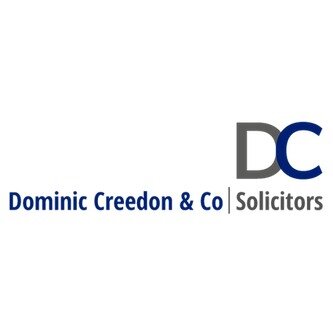Best Land Use & Zoning Lawyers in Cork
Share your needs with us, get contacted by law firms.
Free. Takes 2 min.
Free Guide to Hiring a Real Estate Lawyer
List of the best lawyers in Cork, Ireland
About Land Use & Zoning Law in Cork, Ireland
Land Use & Zoning Law regulates the development and utilization of land in Cork, Ireland. These laws are designed to ensure land is used in ways that promote public welfare while balancing economic development, environmental protection, and community interests. In Cork, planning authorities such as the Cork County Council and Cork City Council play a critical role in administering and enforcing these regulations. Understanding how these laws work is crucial for anyone looking to undertake development projects, buy property, or resolve land disputes in the region.
Why You May Need a Lawyer
Engaging a lawyer who specializes in Land Use & Zoning can be beneficial in several situations, including but not limited to:
- Planning to develop or change the use of land
- Facing objections or legal challenges from neighbors or community groups
- Seeking approval for planning permissions
- Understanding compliance requirements for commercial or residential projects
- Resolving disputes over zoning violations or property boundaries
- Challenging decisions made by local planning authorities
Legal expertise can help you navigate the complexities of zoning laws, adhere to regulations, and ensure successful project completion.
Local Laws Overview
Cork’s Land Use & Zoning laws are grounded in national legislation but also include specific local regulations and policies. Key aspects include:
- Development Plans: Cork County Development Plan and Cork City Development Plan outline land use objectives and zoning policies.
- Planning Permissions: Required for new development, changes in land use, and major modifications to existing structures.
- Environmental Considerations: Regulations to protect natural habitats, water quality, and other environmental factors.
- Zoning Categories: Land is classified into various categories, such as residential, commercial, industrial, agricultural, and recreational.
- Special Areas of Conservation (SACs): Specific regions that require more stringent controls to protect ecological or archaeological significance.
Frequently Asked Questions
What is zoning, and why is it important?
Zoning refers to the division of land into zones where specific land uses are permitted or prohibited. It helps manage urban growth, protect the environment, and ensure sustainable development.
How do I apply for planning permission in Cork?
Applications can be submitted to the Cork City or County Council. It usually involves providing plans, descriptions, and possibly an environmental impact assessment.
Can zoning laws be changed?
Yes, but it requires a formal application to the local authority and goes through a rigorous review process, including public consultations.
What happens if I violate zoning regulations?
Penalties can include fines, mandatory cessation of the violating activity, and possibly undoing the unauthorized development.
How long does the planning permission process take?
It typically takes about eight weeks, but it can be longer if additional information is required or objections are raised.
Can I challenge a planning decision?
Yes, decisions can be appealed to An Bord Pleanála, the national planning appeals board.
Are there restrictions on building in rural areas?
Yes, rural zoning often has stricter regulations to preserve agricultural land, scenic beauty, and community character.
What are Special Areas of Conservation (SACs)?
SACs are designated to protect important habitats. Development in these zones is subject to stricter regulations to protect the environment.
Can I change the use of my property?
Changing the use often requires planning permission, especially if it involves significant alterations or impacts on the neighborhood.
What should I do if my planning application is refused?
You can seek legal advice on the merits of an appeal or consider revising your application to address the reasons for refusal.
Additional Resources
For more information and assistance, the following resources may be helpful:
- Cork County Council Planning Department: Handles planning applications and provides guidelines.
- Cork City Council Planning Department: Manages urban planning and development within the city.
- An Bord Pleanála: The national planning appeals board handles appeals against local authority decisions.
- Environmental Protection Agency (EPA): Offers guidance on environmental regulations.
- Law Society of Ireland: Provides a directory of qualified solicitors specializing in Land Use & Zoning.
Next Steps
If you need legal assistance in Land Use & Zoning, consider the following steps:
- Research: Gather information about your land, zoning laws, and the specific issue you’re facing.
- Consult: Schedule an initial consultation with a solicitor who specializes in Land Use & Zoning.
- Prepare Documents: Collect all necessary documentation, including land deeds, previous planning applications, and correspondence.
- Follow Advice: Work closely with your solicitor to develop a strategy and follow through with their recommendations.
- Stay Informed: Keep up to date with any changes in zoning regulations or planning policies that may affect your situation.
Taking these steps will ensure you are well-prepared and can effectively address any legal challenges related to Land Use & Zoning in Cork, Ireland.
Lawzana helps you find the best lawyers and law firms in Cork through a curated and pre-screened list of qualified legal professionals. Our platform offers rankings and detailed profiles of attorneys and law firms, allowing you to compare based on practice areas, including Land Use & Zoning, experience, and client feedback.
Each profile includes a description of the firm's areas of practice, client reviews, team members and partners, year of establishment, spoken languages, office locations, contact information, social media presence, and any published articles or resources. Most firms on our platform speak English and are experienced in both local and international legal matters.
Get a quote from top-rated law firms in Cork, Ireland — quickly, securely, and without unnecessary hassle.
Disclaimer:
The information provided on this page is for general informational purposes only and does not constitute legal advice. While we strive to ensure the accuracy and relevance of the content, legal information may change over time, and interpretations of the law can vary. You should always consult with a qualified legal professional for advice specific to your situation.
We disclaim all liability for actions taken or not taken based on the content of this page. If you believe any information is incorrect or outdated, please contact us, and we will review and update it where appropriate.
















